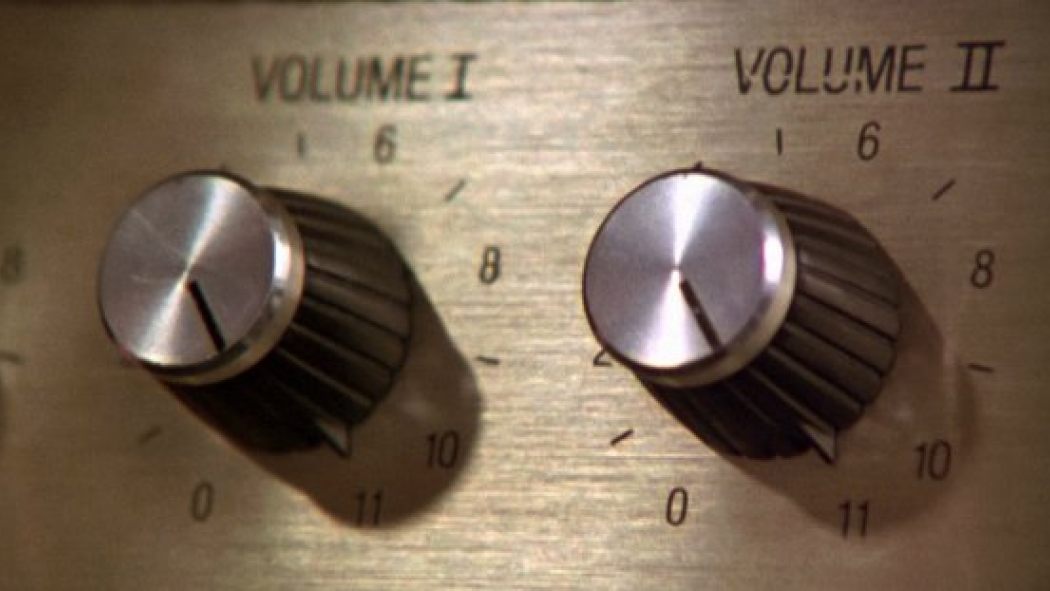Of all the experiences I’ve had in life, I think playing in a band would rank high in my top ten list of greatest and worst. Playing in a band really is a love hate relationship. People have even gone as far as comparing it to dating and I’d have to say that’s a pretty good comparison.
Rather than reminisce about the past thirty-five years of being involved with music in one shape or form, I thought I would break down the ingredients that go into making a band a little more successful than just jamming in the bass player’s basement.
Music is a tough business and is certainly not for the feint of heart because it’s not all about the music but also about managing expectations, which is just a polite way of saying managing feelings.
So without further ado, here are my top four ingredients that go into making up a good band where what comes out of the oven is more than four baked guys getting together to jam out Free Bird for three hours once a week.
#1 Good Singer

The first ingredient on the list is a good singer. I was going to say a band “must” have a good singer, but then I thought the word was a little too strong considering all the horrible singers out there who’ve made it big in the music business. That’s what auto-tune is for, I guess…
If they don’t have a great voice, then having good looks, good moves or a healthy dose of charisma in their DNA will help compensate for their lack of vocal talents. A combination of all three is a rarity, so bonus points can be awarded if they have a customized van or access to one that can be used to haul gear.
One sacred rule of music that can not be broken no matter what, even if they’ve got the moves like Jagger, is this; if they are tone deaf, the band will not make it past the first gig or even get the first gig if they have to do an audition.
Aside from a good lead singer, the band should also have some other decent singers, as many as possible. This is because harmonies are also another cardinal rule of music and it doesn’t matter what style of music you’re playing, okay death metal is an exception, but the band will fall flat on its face if they cannot sing harmonies in a live situation.
Even a basic harmony will do and if you can manage to squeeze in a second monotone harmony, then even better. But for the love of Pete, don’t let anyone in the band sing high harmonies if they think they can reach the notes because that’s exactly what’s happening. They “think” they can reach them, but they can’t. Pro tip, these people are usually good candidates for the monotone harmony.
#2 Good Players

The second ingredient is good players. The band doesn’t need fantastic players, but good enough to handle the material the band is playing. Be extremely weary of the prima donna. Unless they are unquestionably outstanding at what they do, be careful recruiting them into the band because they come pre-installed with something called an ego problem. If a refresher course is required to help spot them, just go hang out at the local music store on a Saturday afternoon and they will come out of the woodwork.
Like a tone deaf singer, the players can’t be mediocre either. This is especially true for the drummer and bass player. Since there is an oversaturation of guitarists on the market or to use the less politically correct phrase, a dime a dozen, one of the primary focuses of the band should be, after landing a decent singer, ensuring they have a solid rhythm section. Think of it as the foundation for the house.
The drummer should be as close to a living, breathing, human metronome as possible, and the bass player has to realize there are three other strings on the instrument besides the E string they like to chug along on. Tightness is of the utmost importance for these two players. If they don’t play well together, the music is going to suffer.
The same applies to any other instruments added to the band. The musicians shouldn’t be mediocre either. But keep in mind, however, that the more players brought into the band, the more things get complicated. This can have a direct impact on the expectations management threshold, not to mention the increase in decibels to the already impenetrable wall of sound at the rehearsal space.
#3 Practice

Once a suitable group of individuals has been lined up, practice is where the rubber hits the road and this is where bands make it or break it. Practice doesn’t start and end after downing the last beer at the weekly band rehearsal, but continues with personal practice during the week. Like learning the songs everyone agreed to learn. The operative word here is “everyone”. If one person in the band isn’t learning their parts, the whole band will only be as good as the weakest link.
Beating up on the guitarist because they didn’t learn Eruption note for note is not what I mean by learning their parts, unless, of course, you’re trying to be a Van Halen tribute band. I mean learning the main parts of the song, where the punches are, that sort of thing.
The three golden rules of practice are:
- Consistency: Band practice needs to be held at the same time and location every week as much as possible.
- Focus: Practice needs to be focused on the goals agreed to from the previous week’s rehearsal.
- Substance Free: Save party time for after practice.
As far as running a practice, it should generally go as follows. Warm up with a couple of songs the band has nailed down already, just to keep them tight; work on the new songs everyone agreed to learn; and end off the practice with an open jam and have some fun.
The best way to approach new songs is to play them all the way through first and see if the song is even working. If the singer can barely hit the high notes or the bass player and drummer can’t seem to get the timing down, the song might have to be axed.
This is why it’s best not to spend hours learning parts note for note before you have run through the songs at band practice first. If you decide to keep the song, then of course fill your boots, but you don’t have to kill yourself trying to learn songs note for note, especially if you’re a cover band.
If everyone seems cool with how it sounded, focus on the crucial parts that need to be tight by going back a few bars and playing them over and over again until everyone’s got it down pat. Then start from the beginning of the song and play all the way through again. Rinse and repeat for every new song.
Never just use practice to play the songs you already know unless, of course, you’re preparing for a gig.
If the band can stick to these golden rules, after a while the band will have a decent number of songs under their belt and this leads me to my final point which isn’t necessarily an ingredient of what makes for a good band but what these ingredients can produce.
#4 Goals

A band without a goal is like trying to fill a bucket with a hole in it. The goal doesn’t have to be some monumental achievement, like winning a grammy award, but should be something the band works towards. Just getting together, smoking weed and jamming is okay too, so long as everyone knows that’s the gig and realizes they’ll never be any either.
The goals of the band are usually spelled out when the band initially gets together. It’s important to make sure that everyone is on the same page with the goal before embarking on putting together thirty-six songs for a three set bar gig.
Goals also break down into one of two distinct categories. Realistic and unrealistic. This is especially true in the music business. For example, if the goal is to play the guitarists’ uncles summer pool party, that could be considered a realistic goal.
But if the goal is to play the uncle’s summer pool party because it might lead to an opening slot on the Metallica tour because he’s in tight with one of their roadies, is an unrealistic goal.
See the difference?
Last but not least, as I’ve said repeatedly throughout this discussion, goals have a direct correlation with expectations and expectations have a direct correlation with personal feelings. If you’ve ever wondered why your favorite band broke up, well, there’s your answer.
So there is my list of ingredients for putting a good band together. A recipe that’s not too hard to follow but one that can become so steeped in human emotion, that it may not turn out right.
I’ve seen a lot over the years being in and out of bands and if I was to give a piece of advice to an up and comer, it would be this; try to find people who are dedicated and share a common goal and don’t expect that these will always be people you’ve known for a long time. Sometimes you have to step out of your comfort zone.
